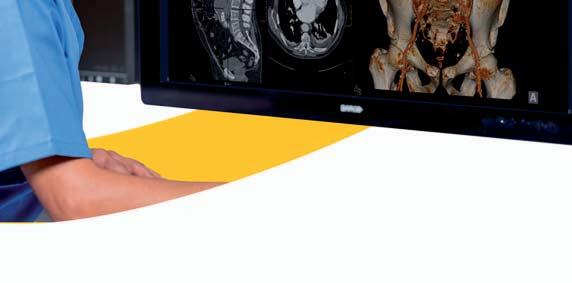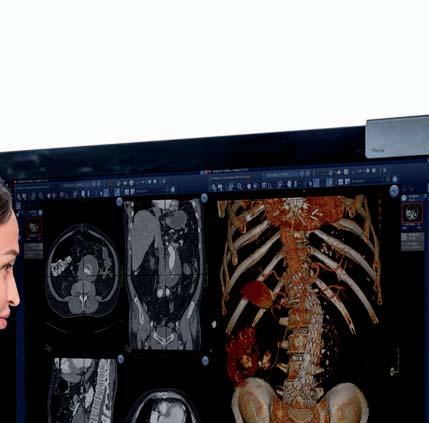
3 minute read
Who owns the patient record? Clarifying issues of sharing, ownership
BY ABIGAIL CARTER-LANGFORD
The COVID-19 pandemic and the increased use of virtual care have intensified the calls for timely and accurate data sharing in Canada. We can answer the calls by taking a collaborative pan-Canadian approach to secure data sharing in a digital environment that empowers patients and clinicians while protecting patient information.
Canada Health Infoway (Infoway) recently published a white paper called A Path Forward for Data Sharing In Canada that champions this approach, and makes it clear that privacy is NOT a barrier to data sharing. The white paper was developed through a literature review, key reports published during the pandemic, and consultations with stakeholders including privacy commissioners and privacy leaders, clinicians, patients and health technology providers.
Many of these stakeholders are living and breathing the challenges of data sharing every day, so it’s vital that their voices be heard.
The observations and recommendations in the paper are based on these underlying principles:
•Expansion of virtual or digital care enables better healthcare for patients and improves the overall Canadian health care system;


•Patients benefit from health data sharing among their providers;
•Patients benefit from having increased control over their health data; and
•Increased collaboration across jurisdictions is desirable because it benefits all Canadians.
The rapid adoption of virtual care during the early months of the pandemic put a stark focus on the privacy controls and processes around the sharing of health data. As one privacy leader who participated in our consultations put it, “all the tiny gaps in the systems got highlighted.” From this experience, we have been able to clearly articulate the barriers and challenges, identify opportunities, and propose solutions.
The barriers and challenges fall into these categories:
•Health privacy laws and regulations across Canada are complex, and guidance and education on permissible uses and disclosures of data is unclear;
•It’s complex to determine the legislative roles of the parties, which is a key enabler to setting efficient rules for collections, uses and disclosures;
•Shared custodianship (where the participants in a data system share the decision-making around data) is not well-understood, making the obligations of each party unclear. This impedes timely implementation of these kinds of arrangements and increases reliance on complex data sharing agreements;
•The assumed accountabilities and risks of protecting personal health information (PHI), are not equal between data custodians and service providers and may create a discrepancy between assumption and ability to mitigate risk;
• Some custodians believe that they, not the patients, “own” the PHI;
•There is a gap in privacy education provided to custodians and this gap can result in fear of penalties for unauthorized disclosure/sharing;
• There is a lack of standardized data sharing agreements and resources to support data sharing; and
•The role that technology providers can and should share in protecting and enabling data sharing is unclear.
That’s quite a laundry list! The white paper goes into much greater detail about each category, so I’ll focus now on the opportunities we’ve identified and the solutions we propose.
There is a need for clear frameworks and standards for health technology providers and custodians that provide greater clarity about how to abide by pri- vacy and security best practices and laws. Pan-Canadian standards will support practical and enforceable measures to enable a common “language for everyone to speak” and a common set of rules to follow. They will also help establish trust.


We need to move from considering only custodianship, and toward embracing a model of information stewardship.
This shift in perspective will give clinicians access to the data they need to provide care, while retaining accountability for the quality and security of the data, and it could enable patients to have more meaningful access to their PHI.
We need to take opportunities to modernize our data governance legislation to consistently put patients at the centre. We should also continue to embed requirements for data sharing within privacy legislation including considering where health technology providers may play a key role in ensuring data protection.
There are also benefits to be gained from data literacy education, including privacy education, for patients, as well as privacy training and education for health technology providers and custodians.
Abigail Carter-Langford is Chief Privacy & Security Officer and Executive Vice President, Governance, Risk & Compliance with Canada Health Infoway.





